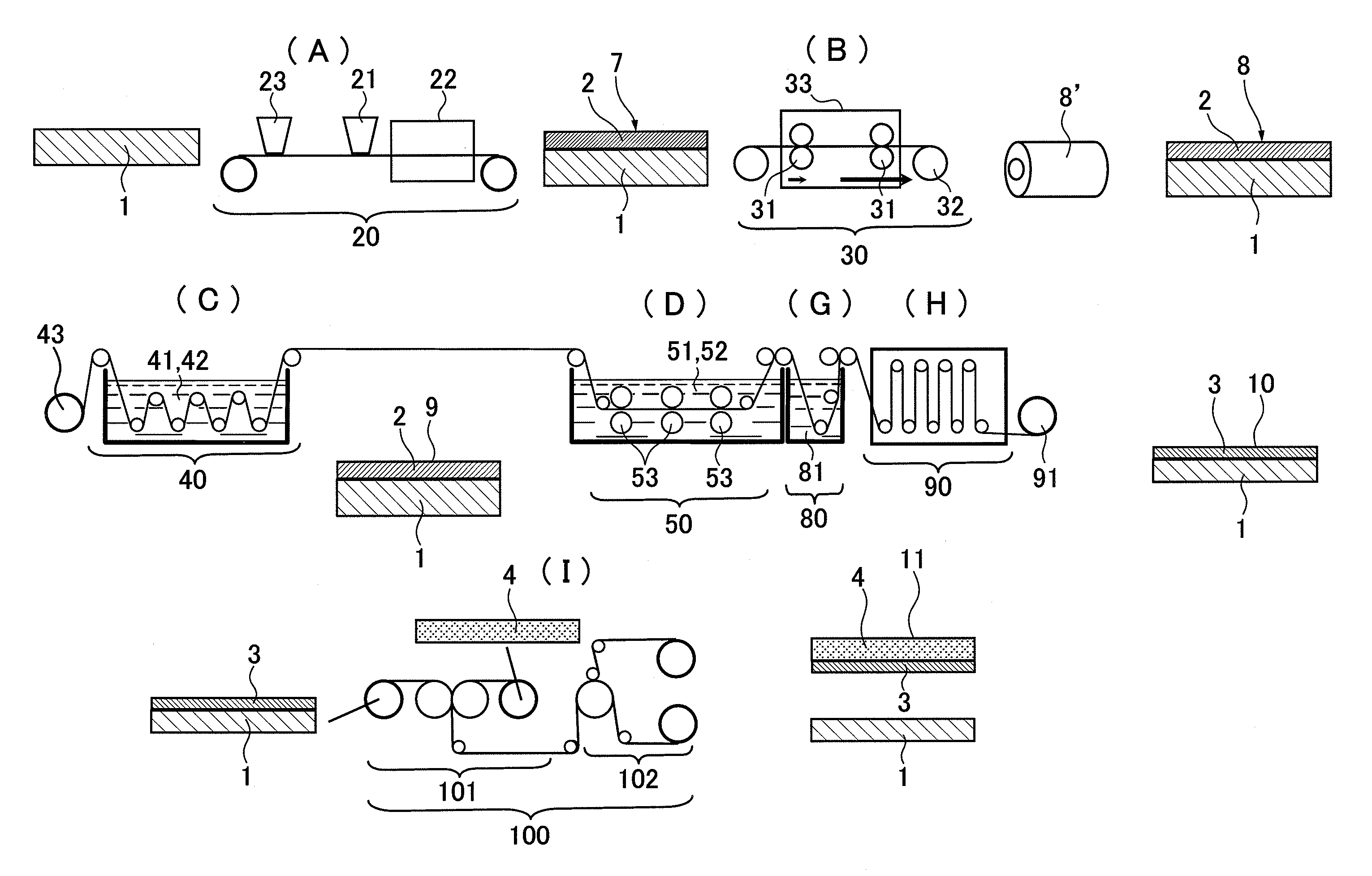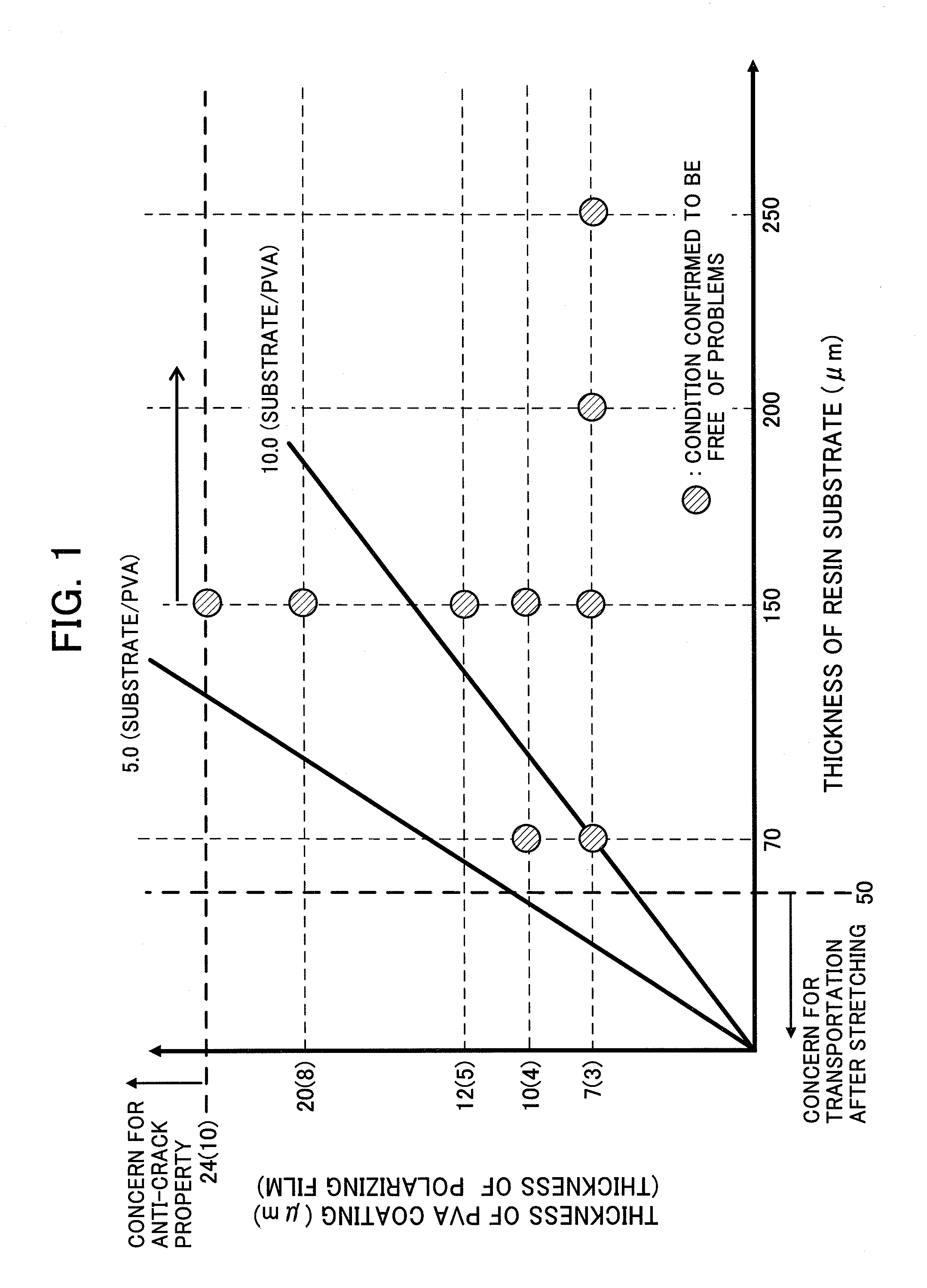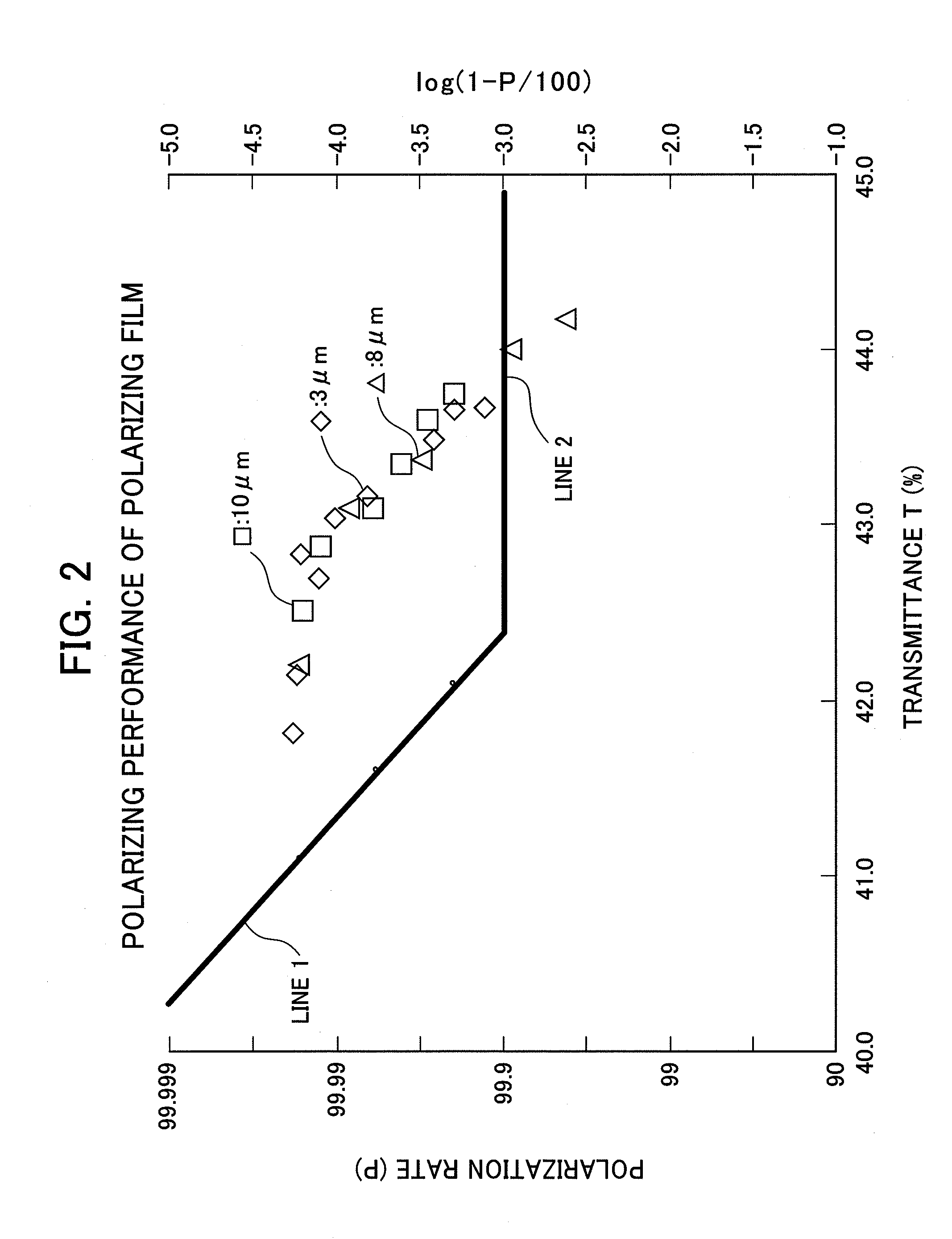Polarizing film, optical film laminate comprising polarizing film, and stretched laminate for manufacturing the same
- Summary
- Abstract
- Description
- Claims
- Application Information
AI Technical Summary
Benefits of technology
Problems solved by technology
Method used
Image
Examples
example 1
[0214]A continuous web of substrate has been produced from a non-crystallizable ester type thermoplastic resin comprising isophthalic acid-copolymerized polyethylene terephthalate (hereinafter referred as “non-crystallizable PET”) containing 6 mol % of isophthalic acid copolymerized therein. The glass transition temperature of the non-crystallizable PET is 75° C. A laminate comprising a continuous web of non-crystallizable PET substrate and polyvinyl alcohol (hereinafter referred as “PVA”) layer has been produced in accordance with the following procedures. It should be noted that the glass transition temperature of PVA is 80° C.
[0215]First, a non-crystallizable PET substrate 1 with a thickness of 200 μm has been prepared together with a PVA solution having a PVA concentration of 4 to 5 wt % which has been prepared by dissolving powders of PVA of a degree of polymerization of 1000 or higher and a degree of saponification of 99% or higher in water. Then, the PVA solution has been app...
example 2
[0224]In the example 2, as in the example 1, a laminate has at first provided by forming a 7 μm-thick PVA layer on a non-crystallizable PET substrate, then the laminate including the 7 μm-thick PVA layer has been subjected to a preliminary in-air stretching, to a stretching ratio of 1.8 to thereby form a stretched laminate, and thereafter the stretched laminate has been immersed in a dyeing solution containing iodine and potassium iodide at a solution temperature of 30° C. to form a dyed laminate including a PVA layer having iodine impregnated therein. In the example 2, in contrast to the example 1, a cross-linking process has additionally been carried out by immersing the dyed laminate for 60 seconds in the boric acid cross-linking solution at a solution temperature of 40° C. for the purpose of cross-linking PVA molecules in the PVA layer having iodine impregnated therein. The boric acid cross-linking solution in this process has contained 3 parts in weight of boric acid with respe...
example 3
[0228]In the example 3, as in the example 1, a laminate has first been prepared by forming a 7 μm-thick PVA layer on a non-crystallizable PET substrate, then the laminate including the 7 μm-thick PVA layer has been subjected to a preliminary in-air stretching to attain a stretching ratio of 1.8, to thereby form a stretched laminate. In the example 3, in contrast to the example 1, an insolubilizing process has been additionally incorporated, for insolubilizing the PVA layer in the stretched laminate and having PVA molecules oriented, the insolubilizing process being carried out by immersing the stretched laminate for 30 seconds in boric acid insolubilizing solution at a solution temperature of 30° C. The boric acid insolubilizing solution in this process has contained 3 parts in weight of boric acid with respect to 100 parts n weight of water. The technical effect obtained by the insolubilization process in the example 3 is that the PVA layer in the stretched laminate is insolubilize...
PUM
| Property | Measurement | Unit |
|---|---|---|
| Thickness | aaaaa | aaaaa |
| Fraction | aaaaa | aaaaa |
| Fraction | aaaaa | aaaaa |
Abstract
Description
Claims
Application Information
 Login to View More
Login to View More - R&D
- Intellectual Property
- Life Sciences
- Materials
- Tech Scout
- Unparalleled Data Quality
- Higher Quality Content
- 60% Fewer Hallucinations
Browse by: Latest US Patents, China's latest patents, Technical Efficacy Thesaurus, Application Domain, Technology Topic, Popular Technical Reports.
© 2025 PatSnap. All rights reserved.Legal|Privacy policy|Modern Slavery Act Transparency Statement|Sitemap|About US| Contact US: help@patsnap.com



